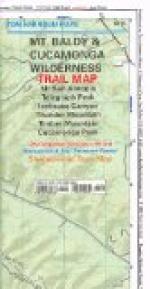The natural mattress was wide enough to accommodate three. The boughs were laid down in rows with the under side up, and overlapped each other. To be sure, an occasional twig might poke a sleeper’s ribs, but what mattered that? To the English boys especially—having the charm of entire novelty—it was a matchless bed, wholesome, restful, and rich with balsamic odors hitherto unknown.
The trio were stupidly tired; but on the American continent no happier or healthier youths could have been found.
It had, indeed, been a night big with experiences; and there was one still to come, which, to Neal Farrar at any rate, was as novel as the rest. He had thrown himself upon his bough couch, too weary to offer anything but the gladness of his heart for worship, when Cyrus touched his arm.
“Look there!” he said. “If a fellow could see that without feeling some sensations go through him which he never felt before, he wouldn’t be worth much!”
He pointed through the open door of the hut at the sky above the clearing, over which was stealing a pearly hue of dawn, shot with a tinge of rosy light, like the fire in the heart of an opal.
This made a royal canopy over the towering head of Old Squaw Mountain,—near by now and plainly visible,—which had not yet lost its starry diadem, though the gems were paling one by one. The shoulders of the peak wore a mantle of purple, and the forest which clothed its bulk was changing from the blackness of a mourning robe to the emerald green of a sea-nymph’s drapery.
The shutters of Night were rolling back, and young Day was stepping out to cast her first smile on a waiting earth.
As the watchers in the hut caught that smile, every thought which rose in them was a daybreak song to the God who is light, and the secret of every dawning.
With the day-smile kissing their faces they fell asleep, feeling that they were wrapped in the embrace of the invisible King.
CHAPTER IV.
Whither bound?
“Where from? Whither bound?” It is not often that a man or boy burns to put these questions—which ships signal to each other when they pass upon the ocean—to some individual who hurries by him on a crowded thoroughfare, whose name perhaps he knows, but whose hand he has never clasped, of whose thoughts, feelings, and capabilities he is ignorant.
But just let him meet that same fellow during a holiday trip to some wild sea-beach or lonely mountain, let an acquaintance spring up, let him observe the habits of the other traveller, discovering a few of his weak points and some of his good ones, and then he wishes to ask, “Where do you hail from? Whither are you bound?”
Therefore, having encountered three fairly good-looking, jovial, well-disposed young fellows amid the solitudes of a Maine forest, having spent some eventful hours in their company, learning how they behaved in certain emergencies, it is but natural that the reader should wish to know their ordinary occupations, with their reasons for venturing into these wilds, and the goal they wish to reach, before he journeys with them farther.




